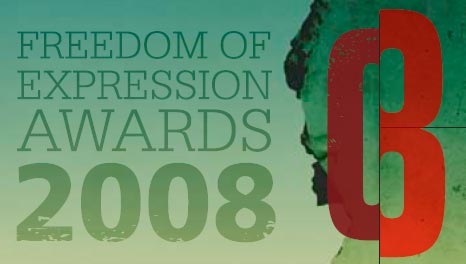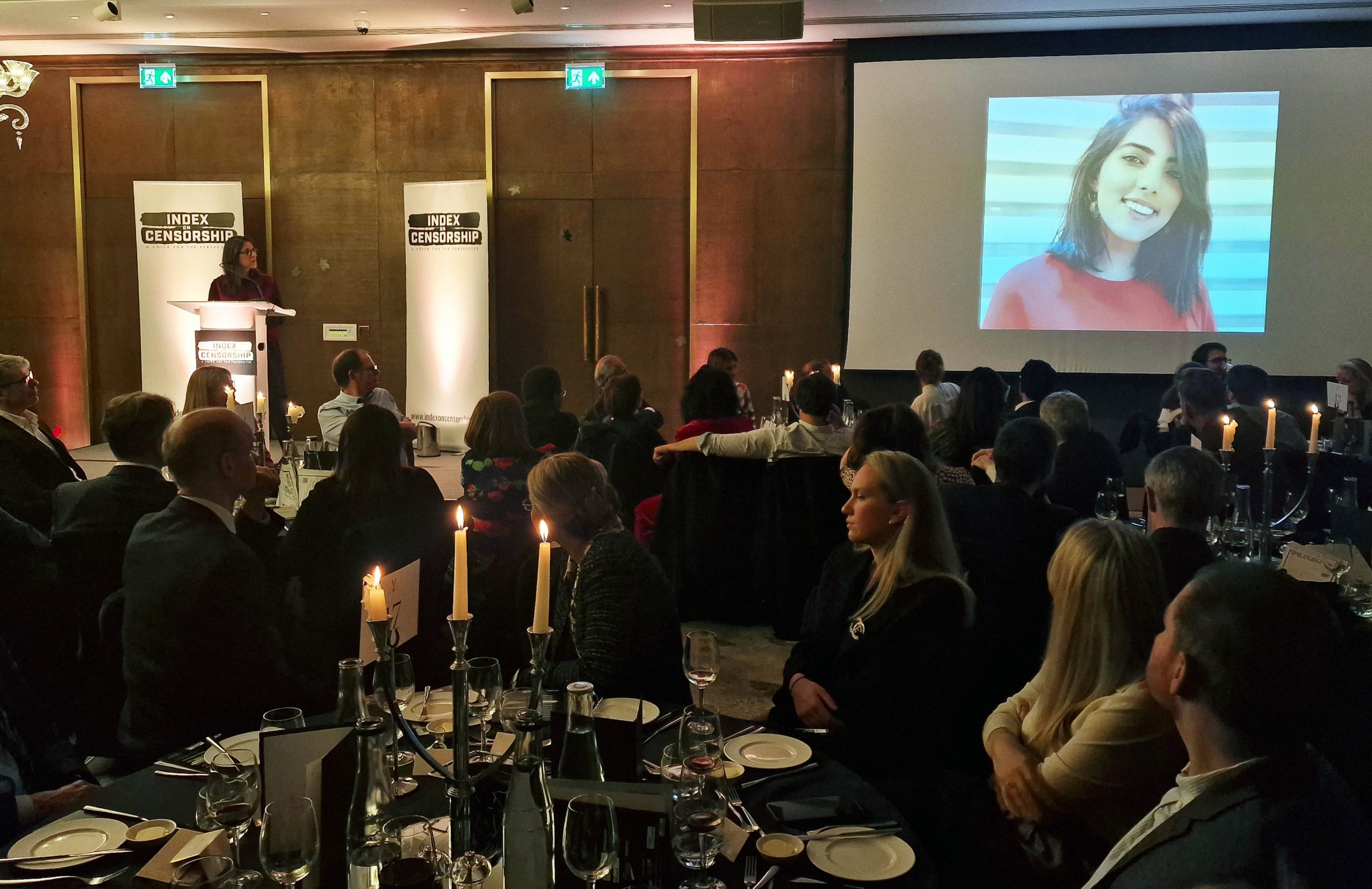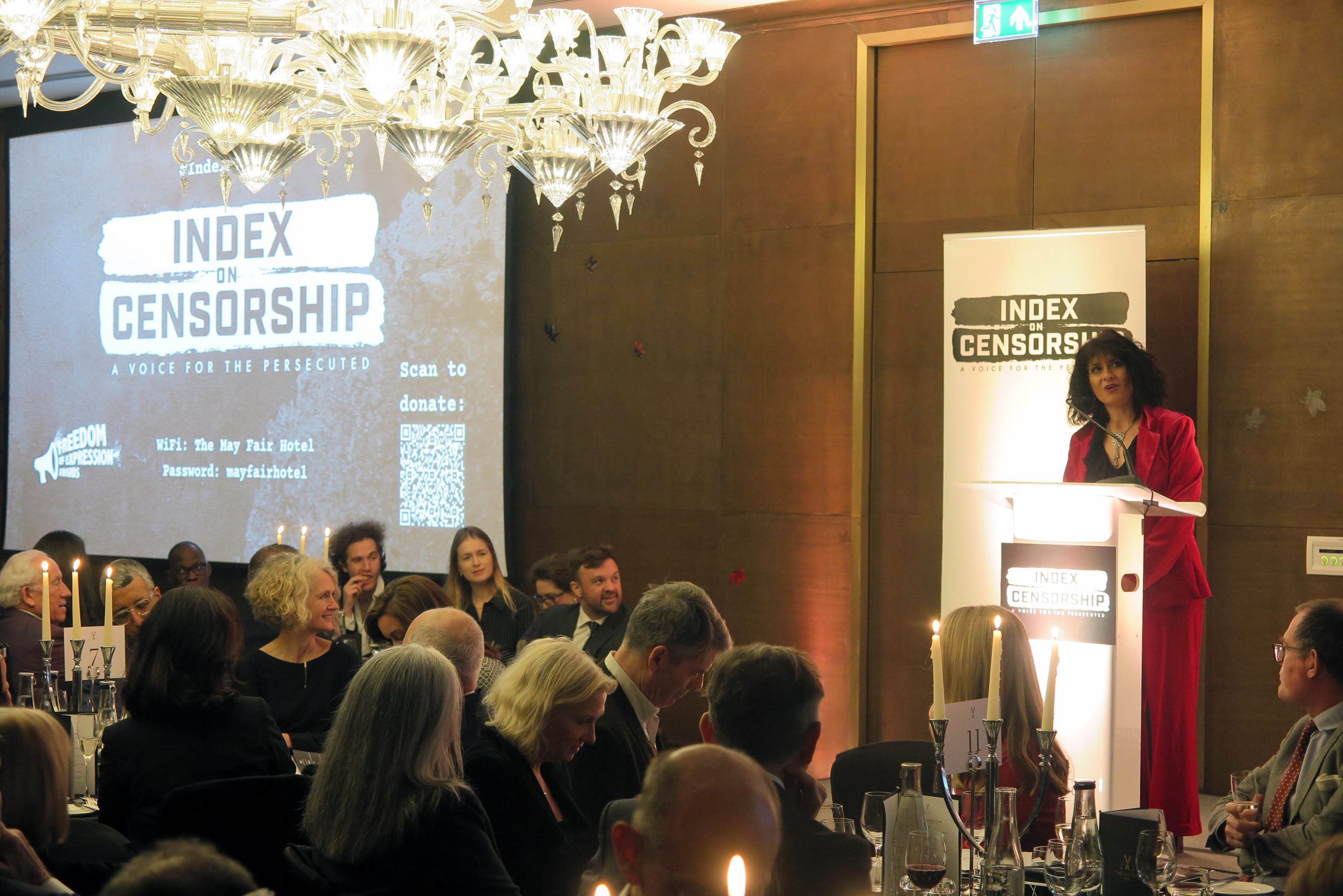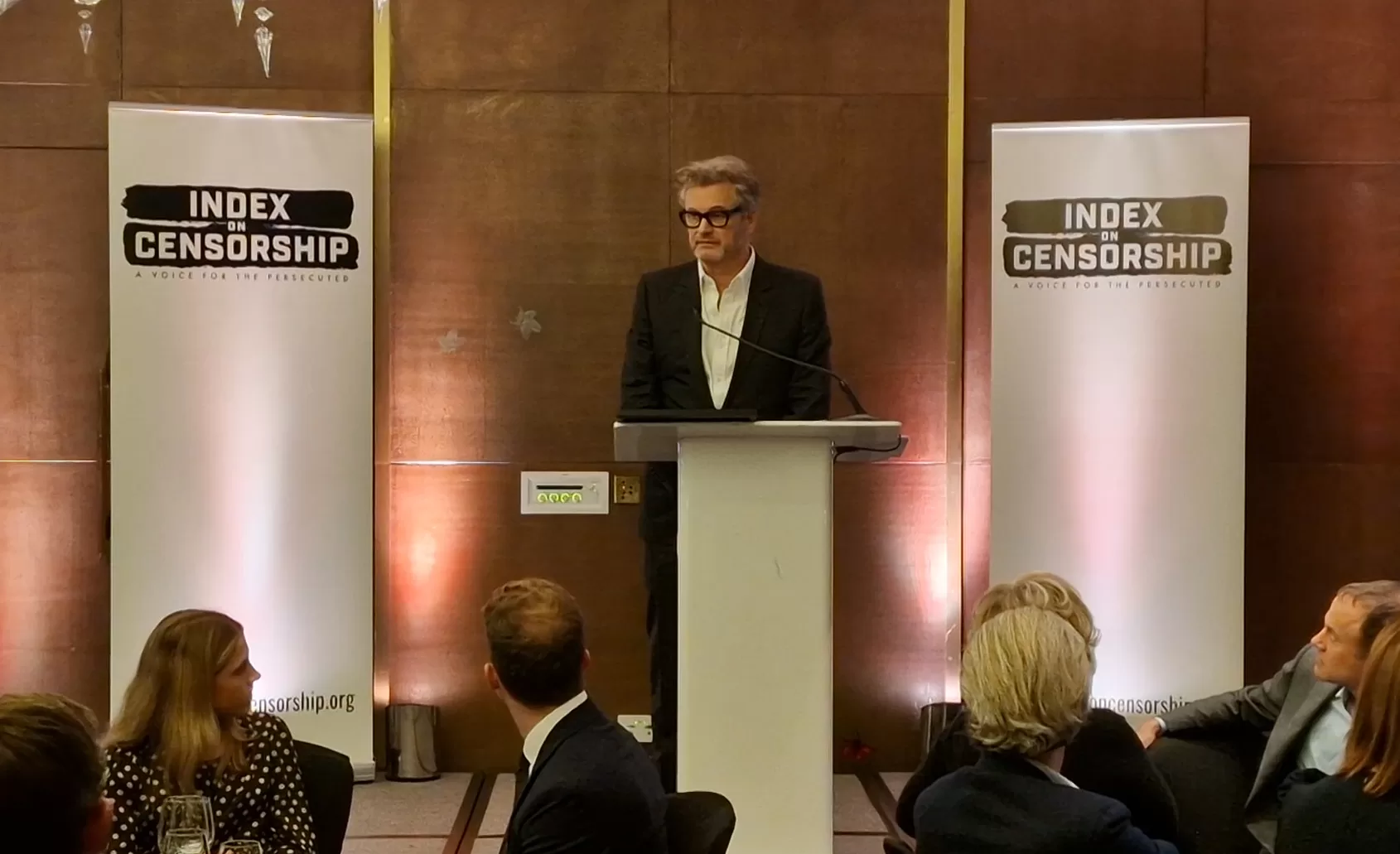Index on Censorship’s Freedom of Expression Awards exist to celebrate individuals or groups who have had a significant impact fighting censorship anywhere in the world.
- Awards were offered in five categories: Film, Journalism, Books, Law and New Media
- Winners were honoured at a gala celebration in London at Christ Church Spitalfields
Founded by Chinese dissidents, along with journalists, mathematicians and IT experts from around the world, Wikileaks aim is to develop ‘an uncensorable system for untraceable mass document leaking and analysis’. The whistleblower’s site has hosted important material, including an operations manual for guards at Guantanamo Bay. In February 2008, Swiss bank Julius Baer & Company tried to gag Wikileaks, after it hosted documents suggesting the company helped customers launder money. A California court ordered Wikileaks’ US Internet Service Provider to take the site down, but it was later restored after wikileaks won an appeal reaffirming First Amendment rights.
U Gambira is the pseudonym of the leader of the All-Burma Monks Alliance, which organized and spearheaded the nationwide protests last year. The monks of Burma have traditionally abided by the draconian measures of the authoritarian regime. U Gambira’s leadership managed to successfully shake them out of their non-confrontational mindset and bring them out in numbers to demand change. The brutal crackdown that followed forced U Gambira into hiding until he was detained in November. He now stands charged with the capital crime of treason, which could result in him being the first monk to be executed in Burma for 70 years.
Arat Dink, editor of Armenian newspaper Agos, was convicted and sentenced to a year in prison on October 11, 2007 under article 301 of the Turkish Penal Code, a repressive legal mechanism through which the state can prosecute and silence those it deems to be ‘denigrating Turkishness’. His crime was to republish an interview mentioning the Armenian genocide. It was originally given to Reuters by his father, former chief editor of Agos, Hrant Dink. Hrant was assassinated by a teenage nationalist in January 2007.
Ahlaam is a powerful depiction of the desperate situation in Iraq before and during the American invasion in 2003. The plot connects three broken souls at a mental institution in Baghdad where they must cope with the chaos that follows the military bombardment. The film crew, shooting in Iraq, also underwent an intense experience, as members of the team were abducted, interrogated, and even killed during the making of the film. Director Mohamed Al-Daradji left no stone unturned in creating an original and authentic portrayal of Iraq in a time of great pain and suffering.
On a Sunday night in 1998, Bishop Juan Gerardi, Guatemala’s leading human rights activist, was bludgeoned to death. Two days earlier, a Church sponsored report had implicated Guatemala’s government in the disappearances of 200,000 civilians. The Church, feeling that it could not rely on the legal system, took the controversial decision to form a team of men, ‘Los Intocables’ (The Untouchables), to uncover the killers. The Art of Political Murder traces Los Intocables’ struggle with the Guatemalan authorities to reveal the truth, uncovering the reality of organized crime and political corruption.
Criteria – Anyone involved in tackling free expression threats – either through journalism, campaigning, the arts or using digital techniques – is eligible for nomination.
Any individual, group or NGO can nominate or self-nominate. There is no cost to apply.
Judges look for courage, creativity and resilience. We shortlist on the basis of those who are deemed to be making the greatest impact in tackling censorship in their chosen area, with a particular focus on topics that are little covered or tackled by others.
Nominees must have had a recognisable impact in the past 12 months.
Where a judge comes from a nominee’s country, or where there is any other potential conflict of interest, the judge will abstain from voting in that category.
Panel – Each year Index recruits an independent panel of judges – leading world voices with diverse expertise across campaigning, journalism, the arts and human rights.
The judges for 2008 were:
Richard Sambrook joined the BBC in the 1980s as a radio news sub-editor. He is now Director of the BBC’s Global News division, responsible for leading the BBC’s international news services across radio, television and new media. He is also a member of the BBC’s Executive Direction Board and the BBC’s Journalism Board. As Director of BBC News from 2001 to 2004, Richard led the world’s biggest broadcast news operation. Recently, he has advocated Citizen Journalism and Social Media, contributing to the debate on their role and definition in an era of expanding access to the means of communication.
Maureen Freely is a novelist, journalist and translator of the Nobel laureate Orhan Pamuk’s novels. She is well known for her campaigning journalism, highlighting the plight of 80 Turkish writers prosecuted (and in the case of Hrant Dink, assassinated), for insulting Turkishness, state institutions, or the memory of Ataturk. She is the author of three works of non-fiction and six novels, the latest of which is Enlightenment (2007), a story set in Istanbul. She writes regularly on feminism, family, social policy and Turkish culture and politics for The Guardian, The Observer, The Independent and The Sunday Times.
Mark Kermode is a film critic, broadcaster and musician. Resident film critic for many BBC programmes such as Radio Five Love and the News Channel, he also frequently contributes to The Culture Show and Newsnight Review. He is contributing editor to Sight & Sound, a regular writer for the Observer. He has a PhD in modern English and American horror fiction, and is a fello of the English and Film Department of Southampton University. He plays the double bass in The Dodge Brothers.
Artist, playwright and poet Lemn Sissay is patron, along with Jacquline Wilson, of The Letterbox Club, an initiative to get books to children in care of social services. His play, Something Dark (2006) was adapted for BBC Radio 3 and won the RIMA award in 2006. He has published four poetry collections and in January 2008 he became British Council Writer in Residence at The University of California, Los Angeles. He regularly contributes to Poetry Review, BBC Radio 4 Saturday Live and has judged The Arvon Poetry Prize and the John Lewellyn Literature Prize.
Peter Wright has been editor of The Mail on Sunday since 1998. After a history degree at Cambridge, Peter began his career in 1975 as a trainee at Thomson Regional Newspapers, spending three years as a reporter with the Hemel Hempstead Evening Post-Echo. He joined the Daily Mail as a reporter in 1979 and progressed through the news, foreign and features desks to become Femail editor in 1988, followed by features editor and deputy editor. At The Mail on Sunday he has launched the Review, Property and Football sections, and Live Magazine. He is married with four children.
Rabinder Singh is a barrister at Matrix Chambers, London, and a Visiting Professor of Law at the LSE. He specialises in public law and human rights law, and has a long-standing interest in the right to freedom of expression.





